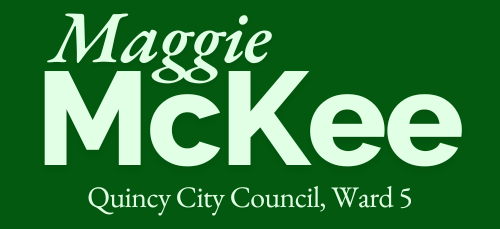Let’s greet Eastern Nazarene families with hope, not fear
This essay ran in The Quincy Sun in August 2023.
Back in World War II, the US refused entry to many Jewish refugees fleeing the Nazis, claiming that they posed a threat to national security. “Every precaution must be taken … to prevent enemy agents slipping across our borders,” warned US Attorney General Francis Biddle in 1942, according to a 2015 story in Smithsonian Magazine.
This piece of history has been on my mind this week, after I read the mayor’s comments in the Sun about migrants being housed at Eastern Nazarene College. “I asked a lot of questions, how this would impact our city both from a public safety standpoint and from the public education standpoint,” Mayor Koch was quoted as saying.
The mention of public safety in particular struck me, since ENC is housing “pregnant women, mothers with young children, and small family units,” according to ENC’s website. These folks have left their homes and countries, many of which are rife with violence, to seek a better life for their children. They have literally risked everything to reach public safety, and I wish the mayor had said something to show them they’d found it here. A simple, “We welcome these families, who have been through so much. Our community will be richer for their presence,” would have set a caring, confident tone.
That message might also have helped calm residents’ anxieties, which he no doubt had already started hearing and perhaps was trying to acknowledge with his statements. On Saturday, these anxieties boiled over when hundreds of people who had received fear-mongering messages about the ENC families from neighbors and acquaintances packed Beechwood Knoll Elementary School’s gym. According to one attendee, they shouted at the mayor, with a few “spewing fear and civil war.”
What’s behind the vitriol? Some claim to be upset about not being told about the housing plan ahead of time. But as Representative Tackey Chan recently said on QATV’s podcast AM Quincy, the college, a private entity, had housed families on campus before without notifying the surrounding community, and neighbors didn’t complain. What’s the difference now?
Others say they’re upset about tax dollars being spent to house non-Americans when there are Americans who could use help. I agree that more money should be spent to help needy Americans. But why is it an either/or question? And why, if non-essential government spending is the root issue, are the same people not out loudly protesting, say, the mayor’s use of federal COVID funds to clear the way for a future mayoral office, over the objections of city councilors? Again, I don’t think the welfare of poor Americans is truly behind people’s objections to ENC housing migrant families.
Then there are those who worry that these mothers, fathers, and children will commit crimes. But what is behind that assumption? Not the data. In a 2020 study of Texas crime data, for example, researchers at the University of Wisconsin found that immigrants (and in particular, undocumented immigrants) had lower rates of felony arrests for violent crime, property crime, and drug violations than US-born citizens. So if the likelihood of a person committing future crimes determined who to ban from Quincy, US-born citizens would have to be the first out the door.
I believe the furor over the ENC families is rooted in fear, a central part of a scarcity mindset, where people feel as if they’re losing out if another group gets something. I think we could all benefit from taking some deep breaths and cultivating more of an abundance mindset, where we act as if there is plenty to go around. Taking note of what we are grateful for and questioning whether our own thoughts stand up to scrutiny can help transform a scarcity mindset to one of abundance, according to an article from the University of Washington’s School of Medicine. “Part of developing a more abundant mindset is recognizing when you have resources and sharing them. The idea here is that helping and giving to others lifts everyone up,” says the article.
That’s not to say that resources aren’t limited – just that approaching a situation as if they’re not encourages collaboration rather than competition. Releasing fear’s hold on us opens up possibilities: for connection, creativity, grace.
I hope that we can approach each other with curiosity and compassion, and treat each other as we ourselves would like to be treated. Those of us who have extra can donate baby and children’s clothes, wipes, strollers, diapers, and more to the ENC families at A New Way Recovery Center, 85 Quincy Avenue, Suite B, in Quincy, or donate money at baystatecs.ejoinme.org/donate. Or if you’d like to volunteer your time, you can reach out to Rev. Lisa Michaels (lisa.michaels@enc.edu) for opportunities.
You could make a friend and learn about another culture while helping a family through a hard time. Welcoming these folks is also self-serving. Jewish refugees fleeing the Nazis who were allowed into the US contributed mightily to our country. Who knows – maybe a little Haitian girl staying at ENC today will grow up to become her generation’s Albert Einstein. Welcoming her family now could make her feel it’s possible.
Maggie McKee
ENC neighbor

